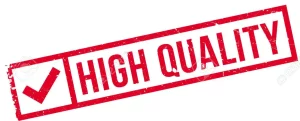- Premium Academic Help From Professionals
- +1 757 528 8682
- support@standardwriter.com
Policy Analysis Course Project
Policy Analysis Course Project
|
Order Number |
636738393092 |
|
Type of Project |
ESSAY |
|
Writer Level |
PHD VERIFIED |
|
Format |
APA |
|
Academic Sources |
10 |
|
Page Count |
3-12 PAGES |
Instructions/Descriptions
Policy Analysis Course Project
To complete this assignment, follow the steps:
Step 1: Reading and Preparation
Read chapter 2 of Clemons and McBeth (2020) titled the Rational Public Policy Method, and Kelly (1986).
Carefully read all about the case “Mini- Case: Democracy or Science? Climate Change and GMOs”. You can find this case on pages 64-65 of the textbook.
Read at least two of the additional readings to be used in the assignment. You can find them on the Activities and Resources page of this week’s module in the Other Resources section.
Step 2: Writing and Submitting Part 1 of the Assignment
This part is the original post you are required to submit on Canvas. This part of the assignment should be between 500-700 words. Answer the following questions:
What does this case say about the advantages, and limitations of a purely rational approach to policymaking? Does money or political influence matter more than rationality?
Do you think that democracy should be used in this case by the nonprofit? If so, what plan do you suggest?
Is Chris being inconsistent in terms of the views of science and democracy? Explain
What is YOUR view on the role of science and democracy in analyzing (and making) public policy? Are they mutually exclusive or compatible or…?
Your answers to questions 1-3 should be supported by the textbook or your choice of the additional readings. At least 2 of the additional readings should be cited in your assignment. The last question asks for your view, feel free to provide an argument based on your opinion and/or professional experience.
Readings
Required Readings:
Clemons & McBeth. (2020) Chapter 2: The Rational Public Policy Model
Kelly, Rita Mae. (1986). Trends in the logic of policy inquiry: A comparison of approaches and a commentary. Policy Studies Review, Vol. 5. No. 3, pp. 520-528/ Link Here (Links to an external site.)
Optional Reading:
Walker, Warren, (2009). Does the best practice of rational-style model-based policy analysis already include ethical considerations? Omega, Vol. 9, pp. 1051-1062 Link Here. (Links to an external site.)
Other Resources
The following sources should be used in WICS 4. See assignment instructions for more information on how to use these sources.
Ahl, J. (2019). People strongly against GMOs had shakier understanding of food science, study finds. (Links to an external site.)
Engber, D. (2016). Label thumpers: The GMO movement is about faith, not facts. (Links to an external site.)
Holly, R. (2015). GMOs, Monsanto and the fight against climate change. (Links to an external site.)
Lipton, E. (2015). Food industry enlisted academics in GMO lobbying war, emails say. (Links to an external site.)
Trotter, G. (2016). GMO labeling debate puts food industry on defensive (Links to an external site.).
Weise, E. (2016). Academies of science finds GMOs not harmful to human health (Links to an external site.).
EuropaBio. (2018). GMOinfo.EU brings you factual information on GMOs in your language (Links to an external site.).
Policy Analysis Course Project
| RUBRIC | |||
| Excellent Quality
95-100%
|
Introduction
45-41 points The context and relevance of the issue, as well as a clear description of the study aim, are presented. The history of searches is discussed. |
Literature Support
91-84 points The context and relevance of the issue, as well as a clear description of the study aim, are presented. The history of searches is discussed. |
Methodology
58-53 points With titles for each slide as well as bulleted sections to group relevant information as required, the content is well-organized. Excellent use of typeface, color, images, effects, and so on to improve readability and presenting content. The minimum length criterion of 10 slides/pages is reached. |
| Average Score
50-85% |
40-38 points
More depth/information is required for the context and importance, otherwise the study detail will be unclear. There is no search history information supplied. |
83-76 points
There is a review of important theoretical literature, however there is limited integration of research into problem-related ideas. The review is just partly focused and arranged. There is research that both supports and opposes. A summary of the material given is provided. The conclusion may or may not include a biblical integration. |
52-49 points
The content is somewhat ordered, but there is no discernible organization. The use of typeface, color, graphics, effects, and so on may sometimes distract from the presenting substance. It is possible that the length criteria will not be reached. |
| Poor Quality
0-45% |
37-1 points
The context and/or importance are lacking. There is no search history information supplied. |
75-1 points
There has been an examination of relevant theoretical literature, but still no research concerning problem-related concepts has been synthesized. The review is just somewhat focused and organized. The provided overview of content does not include any supporting or opposing research. The conclusion has no scriptural references. |
48-1 points
There is no logical or apparent organizational structure. There is no discernible logical sequence. The use of typeface, color, graphics, effects, and so on often detracts from the presenting substance. It is possible that the length criteria will not be reached. |
Policy Analysis Course Project
 |
 |
 |
 |
 |
 |
Place the Order Here: https://standardwriter.com/orders/ordernow / https://standardwriter.com/



